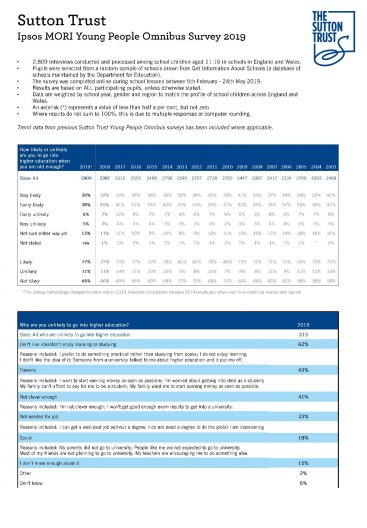Report Overview
On behalf of the Trust, Ipsos MORI surveyed 2,809 young people aged 11-16 across England and Wales on their attitudes towards higher education. The Trust has monitored this trend since 2003 as an indicator of young people’s expectations before they do their GCSEs.
This year’s poll highlights that young people think that knowing the right people and being confident are more important for getting on in life than going to university, and shows how university aspirations continue to differ among young people from different socioeconomic backgrounds.
